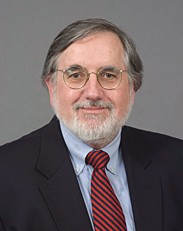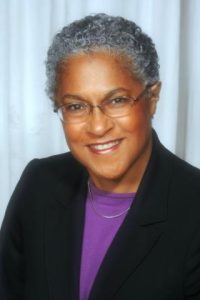2.9 The Contemporary School of Criminological Theory
Brandon Hamann
The Contemporary School of Criminological Theory concerns itself with newer thoughts on causation of criminal behavior. These new theories look to integrate foundational work of old and form brand new explanations for criminal behavior based on ever-changing environmental, social, psychological, economical, and political events. The Contemporary Theorists will take a little bit of Classical, mix it with some Positivist, splash it with some Neoclassical, and voila! Because there is no absolute when it comes to which theory is correct, Criminologists are able to mix and match multiple theories into a cohesive hodgepodge to suit their needs—as long as the data supports the validity and reliability of the theory, of course.

Dr. Francis T. Cullen (1951–) is one such pioneer in the Contemporary School of Criminology who has written extensively on the need for a new way of thinking regarding criminality, specifically on the topics of evidence-based correctional professionalism and reducing offender recidivism through intervention programs (Cullen, 2013). He is also a staunch advocate for criminal justice reform pertaining to those with mental health issues and reforms involving the death penalty and sexual assaults on college campuses. Dr. Cullen’s work has been instrumental in the Contemporary School on Criminological Theory, and he was awarded the Stockholm Prize in Criminology in 2022, one of the most prestigious honors in the field.
Dr. Freda Adler (1934–) is the preeminent expert in gender perspective theory in criminality, specifically the Feminist Theory of Criminology. She is Professor Emeritus at Rutgers University in New Jersey. Dr. Adler has authored multiple books and journal articles on the subject of the gendering of criminology as well as contributed research to areas including international crime, drug use, and social control. During her career, Dr. Adler has advocated for an inclusive shift in the way gender, class, and race are perceived in the study of criminal behavior. She writes that “where once it was permissible simply to ignore women offenders and victims or to attribute female criminality to sexuality and pathology, now it is clear that no theory will be complete—will be truly ‘general’—if it does not consider the role of gender in both women’s and men’s crime” (Adler, 2006, p. 231).
Dr. Carol Smart CBE (1948–) is Professor Emerita of Sociology in the Morgan Centre for the Study of Relationships and Personal Life at the University of Manchester, UK. Like Dr. Adler, she has worked extensively in the field of Feminist Criminology while also conducting research in the field of divorce and children of divorced families. Dr. Smart published an article criticizing Classical and Contemporary criminologists for their theoretically and ideologically uniformed studies regarding female criminality (Smart, 1977). Her career has blossomed, and she has continued to champion the cause for a reimagining of the patriarchal authority of theoretical criminological development, having written scores of professional journal articles and books.

Dr. Kimberlé Crenshaw (1959–), an African American civil rights pioneer, scholar, and writer on feminist legal theory, race, and racism in the law, is a renowned professor at both UCLA School of Law and Columbia University Law School where she specializes in race and gender issues. Dr. Crenshaw has authored many articles and books on the topic of Intersectionality – how race, class, and gender interact to affect criminality. Her work has begun to transform criminological theory on the perspective of social justice and has continued to argue against the patriarchal paradigm of the criminal justice system as a whole and has advocated for a more diverse, equal, and inclusive discussion on criminal behavior causation theory development.

Dr. Patricia Hill Collins (1948–) is the Distinguished Professor Emerita at the University of Maryland where she specializes in research and scholarship examining issues of race, gender, and social class including sexuality and/or nation. Dr. Collins is a Social Theorist who proposed a theory of Sociology that advocated for the empowerment of sociological theory development from the perspective of African American women.

